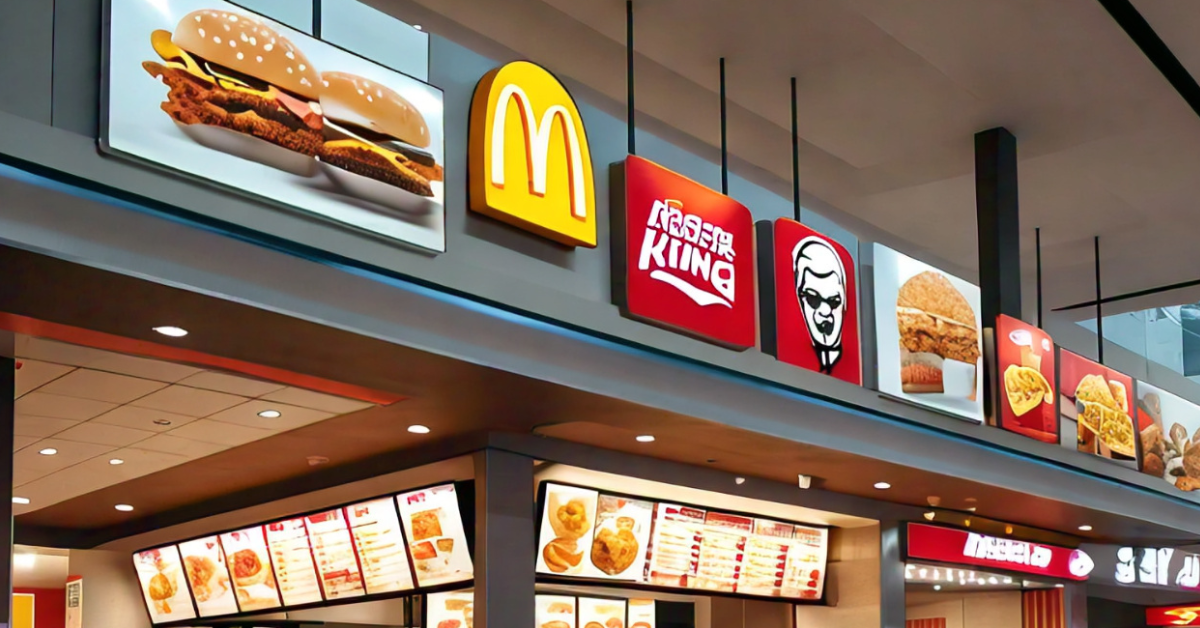Powered by RedCircle
Fast-food chains are reviving the $5 price point to attract customers who are cutting back on spending. You might remember Subway’s iconic $5 footlongs from a decade ago. Well, now chains like McDonald’s, Taco Bell, Burger King, and Wendy’s are bringing back meal deals at this price point.
With second-quarter results just around the corner, investors are on edge, anticipating reports of declining visits and sluggish sales. Chipotle seems to be an outlier, but for many fast-food giants, there’s hope that these value meals will turn things around in the next quarter.
Fast food usually holds up better than other industries during economic downturns, but recent price hikes have driven over 60% of consumers to cut back on their fast-food spending, according to a LendingTree survey. This cutback has particularly hit low-income customers, who form a significant part of the fast-food market.
Interestingly, casual dining chains like Chili’s are capitalizing on this shift, presenting themselves as a better value compared to fast food. Rick Cardenas, CEO of Darden Restaurants, pointed out that casual dining chains are gaining market share from fast food.
Shares of major fast-food companies have taken a hit. McDonald’s, Burger King parent Restaurant Brands International, and Wendy’s have all seen double-digit declines this year. Even Taco Bell owner Yum Brands is down over 1% in 2024, while the S&P 500 has risen by 14%. Eric Gonzalez, an analyst at KeyBanc, predicts a tough second quarter for these chains, with many likely missing consensus estimates.
McDonald’s is set to report its second-quarter earnings on Monday, Wendy’s on Wednesday, and Restaurant Brands and Yum Brands the following week. Typically, fast-food chains focus their discounts on the first quarter, but this summer is different. With the need to drive traffic and sales growth, these discounts have become crucial. Robert Byrne from Technomic highlights that restaurants have little room left to increase prices, so they must convert deal-seekers into higher-ticket consumers by offering add-ons.
The challenge is convincing customers to add more to their orders. Without this, these discounts can hurt profits and become unsustainable. Franchisees are also skeptical of these promotions. Many have gained more power to resist parent companies’ discount strategies, pushing back against profit-eroding deals.
At McDonald’s, franchisees initially resisted the $5 value meal proposal, but Coca-Cola stepped in, contributing marketing funds to make the deal more attractive. The promotion has been extended beyond its initial four-week run, with 93% of McDonald’s restaurants voting in favor.
The promotion has shown some success. June 25th, the launch day of McDonald’s $5 meal, saw an 8% increase in visits compared to the average Tuesday this year. However, a survey of McDonald’s franchisees by Mark Kalinowski suggested the $5 meal deal only boosted sales by an average of 1.3%, indicating it may help retain existing customers rather than significantly driving new sales.
That’s it for today’s episode of Business Nexus News. Stay tuned for more insights and updates on the business world. Don’t forget to subscribe and leave us a review. I’m Carl Andrew, and I’ll catch you in the next episode. Stay informed, stay ahead.




